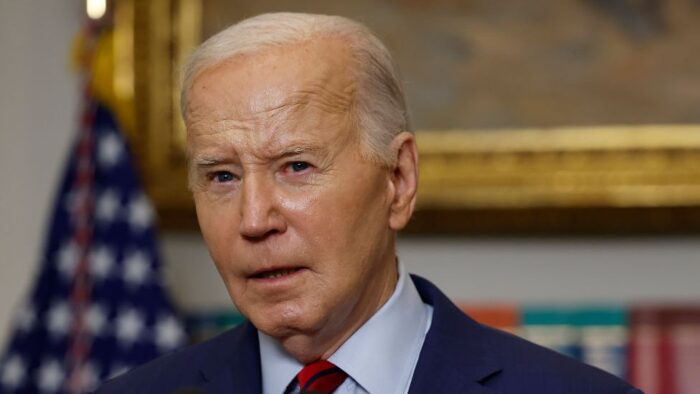President Joe Biden sparked controversy this week when he labeled key Asian allies Japan and India as “xenophobic” while speaking about immigration policy at a campaign fundraiser. In this article we talk about Joe Biden Calls on US Allies India and Japan ‘Xenophobic’? What’s Really Behind It?
“Why is China stalling so badly economically? Why is Japan having trouble? Why is Russia? Why is India?” Biden asked rhetorically. “Because they’re xenophobic. They don’t want immigrants.”
The comments came just weeks after Biden affirmed the strength of the US-Japan alliance during Prime Minister Fumio Kishida’s visit to Washington. India is also a vital partner for the US, though concerns persist in Washington about human rights protections and religious freedom there.
Biden’s Remarks Draw Bipartisan Backlash
Biden’s lumping of Japan and India together with authoritarian regimes like China and Russia as part of his critique of their immigration stances has provoked bipartisan criticism.
Elbridge Colby, a former Trump administration defense official, wrote on social media that Japan and India “are two of our very stoutest and important allies. We should speak to them with respect, which they command and deserve. Applying parochial progressive views to our allies is patronizing and foolish.”
Sadanand Dhume of the American Enterprise Institute told the BBC that Biden’s words would likely reinforce beliefs among some nationalist-minded Indians that Biden harbors anti-India views. However, Dhume downplayed long-term diplomatic fallout, calling it a “tempest in a teacup.”
The White House downplayed any offense caused, with spokesman John Kirby stating allies know Biden deeply values partnerships and alliances. However, the mixed messaging has contributed to ongoing critiques of Biden’s diplomatic acumen.
Examining the Context Behind Biden’s Comments
While undiplomatic, Biden’s remarks reflect liberal internationalist ideals prioritizing diversity and inclusion as sources of economic dynamism and societal vibrancy. However, the specific critiques of Japan and India require nuanced analysis.
Contrary to Biden’s assertion, Russia relies heavily on migrant labor from Central Asia, though the Kremlin’s increasing authoritarianism and isolationism hinders immigration. Japan and China do have relatively few immigrants, while India’s steady growth challenges Biden’s linkage between immigration and economic success.
Japan and India Pursue Contrasting Immigration Approaches
While Japan has historically had strict immigration limits, demographic decline has pushed Tokyo to allow more foreign workers in specific sectors facing labor shortages. This gradual opening reflects recognition of immigration’s economic necessity while attempting to preserve social cohesion.
India possesses the opposite problem as the world’s largest democracy grapples with illegal immigration, particularly in border regions. While not actively welcoming immigrants, India can hardly be labeled xenophobic given its extraordinary ethnic, religious, and linguistic diversity.
However, recent growth of Hindu nationalism has led to policies and rhetoric concerning Muslim migrants that undermine India’s founding secularist ideals. Biden’s administration has expressed concerns over rising Hindutva extremism’s impacts on religious minorities.
But grouping the world’s largest democracy with Russia and China disregards key differences and hinders a nuanced discussion of immigration’s complex role in social cohesion and economic success.
Biden Faces Charges of Hypocrisy on Immigration Policy
Biden’s critiques of Japan and India also invite accusations of hypocrisy given his administration’s immigration policies. The President who repeatedly assailed Trump’s immigration stance as xenophobic now faces widespread criticism from both parties over his handling of the US-Mexico border.
While Biden’s comments at the Democratic fundraiser reflect enduring progressive ideals, they clash with political realities. America’s immigration system remains severely strained by partisan divides. Meanwhile, simplistic critiques of allied nations grappling with complex demographic challenges undermine US foreign policy interests.
Rather than careless rhetoric, navigating immigration’s opportunities and tensions requires nuance attuned to each nation’s unique circumstances. Despite the White House brushing aside his remarks, Biden’s comments reveal an administration struggling to balance lofty principles with pragmatic policymaking — on immigration and beyond. I sincerely hope you find this “Joe Biden Calls on US Allies India and Japan ‘Xenophobic’? What’s Really Behind It?” article helpful.





